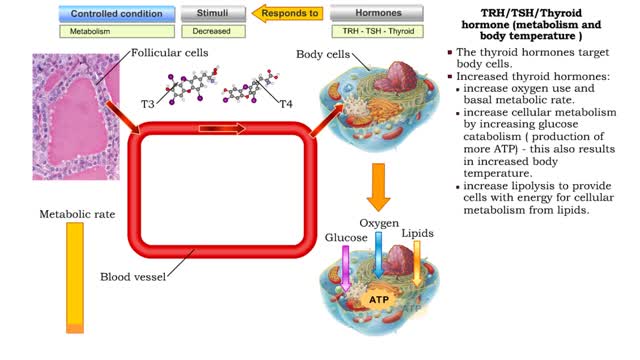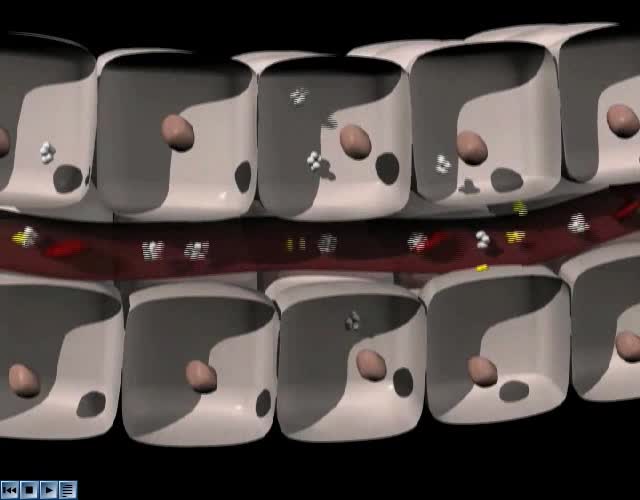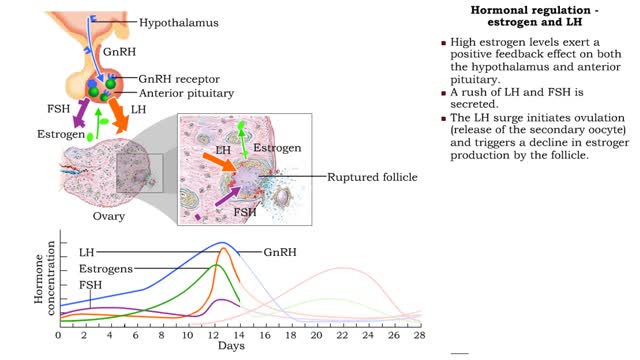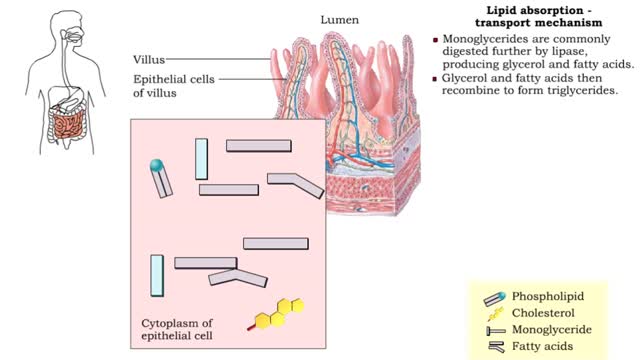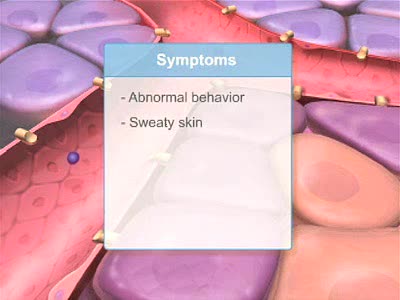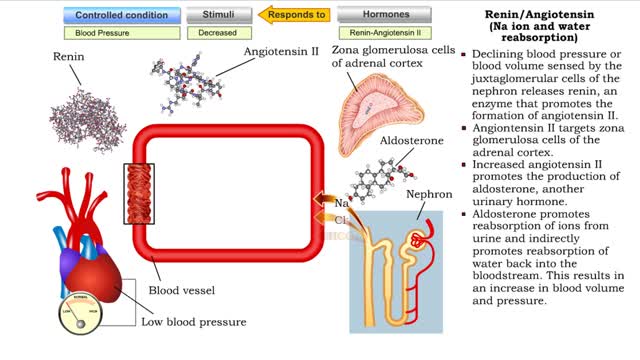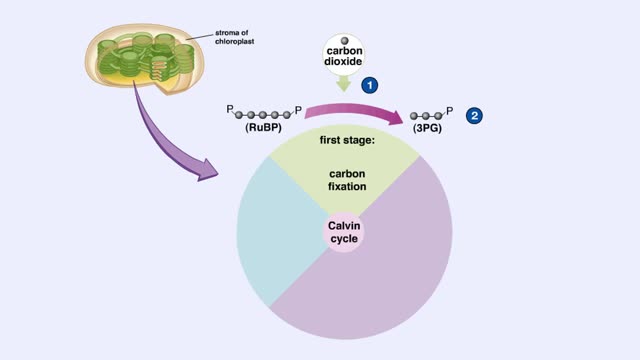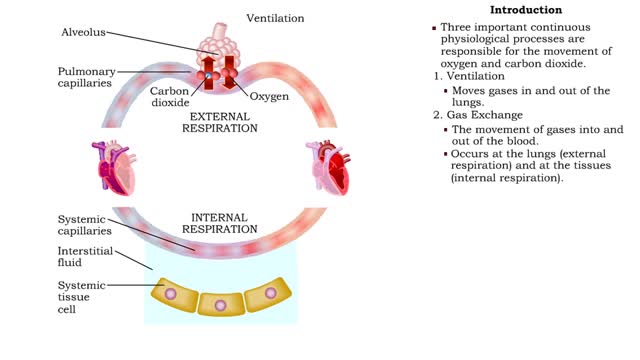Search Results
Results for: 'Import of Dietary Glucose from Intestines to Bloodstream'
By: HWC, Views: 10524
Thyroid hormone production • A decline in metabolic rate caused by increased metabolic need or physical exertion stimulates the production of thyrotropin hormone releasing (TRH) hormone from the cells of the hypothalamus. • Thyrotropin hormone releasing hormone targets the thyrotrophic ce...
By: Administrator, Views: 15270
Hypoglycemia, also known as low blood sugar, is when blood sugar decreases to below normal levels. This may result in a variety of symptoms including clumsiness, trouble talking, confusion, loss of consciousness, seizures or death. A feeling of hunger, sweating, shakiness and weakness may also be...
Phases of the Female Reproductive Cycle - Hormonal regulation
By: HWC, Views: 11390
FSH, LH and estrogen • FSH travels through the bloodstream from the anterior pituitary to the ovaries. • FSH promotes follicular growth. Increased follicular growth promotes estrogen production. • Small increases in blood estrogen levels inhibit the release of FSH and LH into the bl...
Lipid absorption - end products & transport mechanism
By: HWC, Views: 10520
• The end products, fatty acids and monoglycerides, depend on bile salts for absorption. • Bile salts form micelles (tiny spheres), which ferry fatty acids and monoglycerides to epithelial cells. • Free fatty acids, monoglycerides, and some phospholipids and cholesterol molecules, dif...
By: Administrator, Views: 14132
Hyposecretion or inadequate use of insulin may result in diabetes mellitus (DM). Hypersecretion of insulin may result in hyperinsulinism. Diabetes mellitus is the most common endocrine system disorder of childhood. Symptoms include: Polyuria Polydipsia Polyphagia Management of DM durin...
By: Administrator, Views: 15173
The islets of Langerhans are composed of three major types of cells: Alpha cells secrete glucagon, elevating blood sugar. Beta cells secrete insulin, maintaining normal blood sugar. Delta cells secrete somatostatin, which suppresses release of glucagon and insulin. Hyposecretion or inadequa...
Renin/Angiotensin (water gain from urine & Na ion and water reabsorption)
By: HWC, Views: 10904
• Sensing declining blood pressure or blood volume, juxtaglomerular cells of the nephron release renin, an enzyme that promotes the formation of angiotensin II. • Angiotensin II targets smooth muscle cells in blood vessels that provide blood to the nephron. • Angiotensin II causes thes...
Calvin cycle (The light-independent reactions )
By: HWC, Views: 10720
The light-independent reactions of photosynthesis occur in the stroma of the chloroplast. Carbon dioxide enters the leaf through tiny pores or stomata and diffuses into the chloroplast. The first stage of the Calvin cycle is the attachment of a carbon dioxide molecule to a 5-carbon ribulose bi...
By: HWC, Views: 10918
• The respiratory system is responsible for the movement of gases involved in cellular metabolism. • Oxygen is used up and carbon dioxide is generated during the aerobic breakdown of glucose and other fuel molecules in order to produce ATP. • Three important continuous physiological pro...
Advertisement



